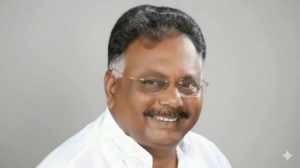Old order changes,G20 replaces G8 as worlds power club
We need an external environment that enables growth of exports,capital inflow,tech transfer: PM....
Prime Minister Manmohan Singh could not have got a better birthday gift as he walked away with much of what New Delhi wanted at the Group of 20 Summit in Pittsburgh. Not only did the Summit pledge continuation of stimulus till a durable recovery is secured but it also acknowledged the shift in global balance of power by designating the G20 as the premier forum for discussing international economic issues.
The G20 will,in effect,replace the Group of Eight (G8) that was increasingly being seen as an outdated club,not reflecting contemporary economic realities.
Addressing the media after the G20 Summit declaration,Singh said the continuation of stimulus and emergence of G20 as a premier forum were very significant from Indias point of view. We need an external environment that will enable us to grow our exports,attract larger capital inflows and better technology transfers, he said,emphasising how crucial it is for developing countries that stimulus was not prematurely withdrawn.
Also,with the G20 emerging as the next big platform,India now finds itself on the high table with an opportunity to influence decision-making on global issues. Backed by the buoyant growth of an average 7 per cent in the last decade,New Delhi has long been pushing for changes in the global governance structure to reflect the growing stature of emerging economies.
The global crisis seems to have forced this reality upon the developed countries. No country,howsoever powerful it may be,can take on the entire burden of economic adjustment and decision making that may be required to manage the global system. It is this reality that has persuaded many in Europe and the US to acknowledge that the G8 cannot handle all global issues,especially with the rise of Asia (India and China),Brazil and Russia, Singh said on G20 replacing G8.
Developing countries,especially the BRIC (Brazil,Russia,India and China),have also been able to push their agenda for a higher voice in multilateral institutions. India can now expect an almost doubling of its quota at the International Monetary Fund from 1.87 per cent now. The quota of developing countries in IMF will go up 5 percentage points (against 7 percentage points demanded) to 49 per cent by 2011. Thats a compromise, said Singh,but India is happy to live with it.
Further,India and other developing countries can also expect their representatives to be at the helm of international institutions. The G20 summit has agreed that the senior leadership would be appointed through an open,transparent and merit-based process. Similar to the IMF,the next shareholding review in the World Bank will see an increase of at least 3 per cent voting power for developing and transition countries.
Interestingly,the Leaders Statement that launches a framework for strong,sustainable and balanced growth also calls for monitoring the economic growth in the G20 countries. There will be sort of a peer review that will provide for exchange of views and give all an opportunity to understand the weaknesses of other countries economies, Singh said.
The Prime Minister said the G20 also appreciated the success of the Delhi ministerial meeting in reviving the process of negotiations on the Doha round of trade talks. We have agreed that we should work for an early resolution of Doha to counter protectionism, he said.
While India has agreed to a general commitment that subsidies on fossil fuels must be retired over a period of time,it was clear developed countries must do their bit if the outcome at the United Nations Framework Convention on Climate Change. Developed countries must carry out credible action to carry out emission reductions. Besides,there must be adequate resources-financial and technology transfer – that must be provided to developing countries, Singh said.
- 01
- 02
- 03
- 04
- 05































